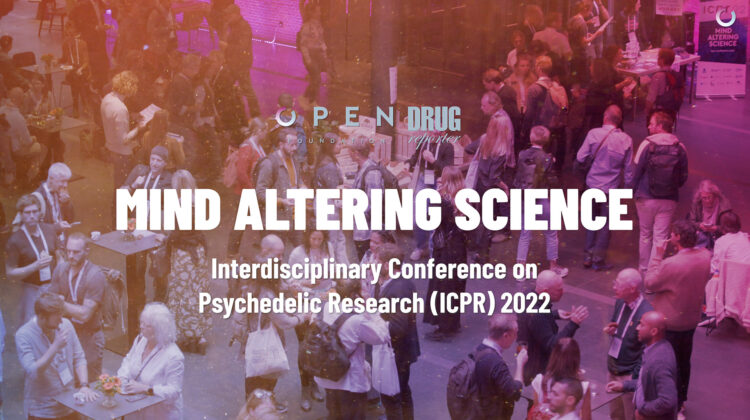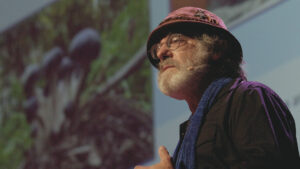We proudly present our movie featuring interviews with key researchers from the forefront of psychedelic science, filmed at the Interdisciplinary Conference on Psychedelic Research in Haarlem, the Netherlands.
A few weeks ago we premiered two of our movies in Budapest in a packed room with two hundred people. One of these movies was Mind Altering Science, presented here, filmed at the Interdisciplinary Conference on Psychedelic Research in Haarlem, the Netherlands in September 2022. We were invited by Open Foundation, the organisers of the conference, to film the event. This was not the first ICPR conference we had filmed: that one took place in 2016, and is featured in our movie The Renaissance of Psychedelic Research. But this was definitely the largest.
Long version of the film:
And the short version:
The public interest in psychedelics has been constantly growing ever since that 2016 conference, and it does not seem to have peaked yet. Michael Pollan’s book and Netflix documentary made an unquestionable contribution to this growing interest, but it is more than that. Many scientists point out that there has been no real innovation in mental health care in the past couple of decades and that there is a desperate demand for new treatment methods for depression, PTSD, and other mental disorders. But as I see it, there is more than simply scientific and medical curiosity behind the amazing growth in interest in psychedelics.
There is a great demand in our consumer societies for spiritual exit strategies. A way out from the mindless, insatiable hunger of consumerism. New life paths beyond empty materialism. A desire to find a meaning larger than ourselves and to find it in new forms, outside institutionalised religions, as empirically explorable reality. This spiritual seeking explains why psychedelics are so attractive to many people, and is the reason that psychedelics will not be constrained to the realm of medicine and scientific research. Their impact will be much broader.
But unlike in the 60s, when Timothy Leary formulated his famous “Turn on, Tune in, Drop out” phrase, pathfinders in the 2020s rarely would like to completely drop out from society. They seek ways to integrate the psychedelic experience in their everyday lives and enrich their human experience. This second psychedelic renaissance, unlike the first, like it or not, is a renaissance for venture capitalism. And that is why so many people who have been advocating for psychedelics for a long time are suspicious about the current hype around psychedelics.
Scientists are worried that the hype jumps ahead of research by advertising psychedelics as a universal medicine. Indigenous activists are concerned that the knowledge and experience of elders is pushed aside. Drug policy reformers are afraid about “psychedelic exceptionalism”. Public health professionals are worried that only a small elite can enjoy the medical benefits of psychedelics because of the prohibitively high price of psychedelic-assisted psychotherapies.
All these concerns are valid. One thing is sure: the genie is out of the bottle. Psychedelics will soon find their way into mainstream medicine, science, and spirituality, if they haven’t already. After so many decades of repression, people have to learn to find a harmonious coexistence with these powerful substances. We hope our movies can contribute to this goal.
Text and interviews: Péter Sárosi
Video: István Gábor Takács
Interviewees in the film: Jjoost Breeksema, Aleksi Hupli, phd, Aleksandra Nikolaeva, David Nichols, phd, Péter Sárosi, Katrin Preller, phd, Nadia Aalling, phd, David Nutt, phd, Peter Gasser, MD, Roberta Murphy, MD, Ashleigh Murphy-Beiner, Houman Farzin, MD, Robert Schoevers, MD, PhD, Paul Stamets, Balazs Szigeti, PhD, Bernardo Kastrup, PhD, Christine Hauskeller, PhD, Vanesa Fernandez, Michiel van Elk, PhD, Monnica Williams, PhD, Amanda Feilding






